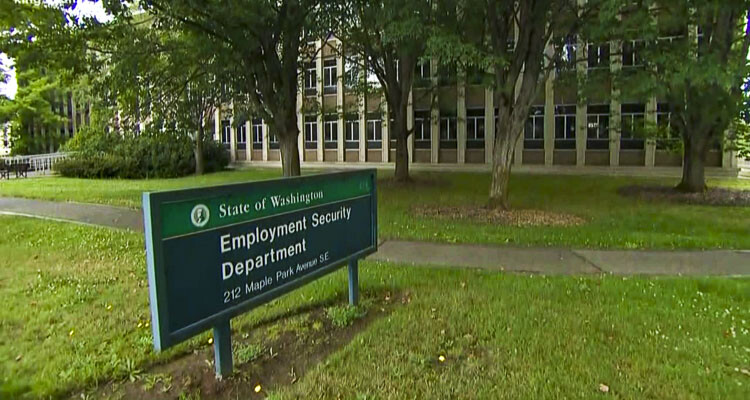
Mark Harmsworth of the Washington Policy Center states that ESD officials need to provide the public with more transparency into its internal policies
Mark Harmsworth
Washington Policy Center
The Employment Security Department (ESD) has been riddled with problems, including a Nigerian fraud scam that lost state taxpayers 100’s of millions of dollars and State auditor’s assessment of the systemic lack of fraud controls at the troubled agency.

Now taxpayers will be footing the bill for ESD’s overpayment mistakes.
An ESD bureaucratic failure to communicate clearly, has left thousands of residents receiving incorrect unemployment benefit amounts and, in some cases, overpayment of benefits. ESD has stated that due to the federal government Pandemic Unemployment Assistance (PUA) benefit ending, claimants were required to refile for unemployment and ESD issued notices instructing claimants on what needed to be done. The notifications for this change was poorly communicated and many claimants didn’t receive notifications and have been asked to repay the overpayments.
ESD had been trying to get the money back for the last two years and now, according to the Seattle Times, ESD is giving up on getting the money back which will require the rest of Washington taxpayers foot the bill for ESDs mistakes. Approximately 115,000 Washington residents owe $1 billion in over payments.
The federal government updated guidance in 2022 and now allows States to waive the overpayment (close to $12 million last week alone).
ESD incompetence has placed many Washington residents that claimed benefits in a difficult situation. Many did not know they were not eligible for benefits, yet the agency continued to pay them. Little or no auditing was performed by ESD, obviously, since the mistake was not corrected immediately.
The scale of the error ($1 Billion) shows the immediate need for ESD review by outside agencies.
ESD officials need to provide the public with more transparency into its internal policies, improve fund balance reporting accuracy, data timeliness and data availability.
Additionally, ESD needs to provide improved authentication and fraud protections against scams and individual fraudulent claims and needs reform to employer taxation policy and trust fund use.
In addition to ESD completing the current audits, regular bicameral legislative oversight of ESD is required.
For all of the Washington Policy Center recommendations, read the full Policy Brief here.
Mark Harmsworth is the director of the Small Business Center at the Washington Policy Center.
Also read:
- Opinion: OIC tells consumers not to pay for ‘insurance’ you won’t likely benefit from: Does that include WA Cares?Elizabeth New (Hovde) of the Washington Policy Center believes you should consider yourself warned by the Office of the Insurance Commissioner about WA Cares and its maybe-only benefit.
- Opinion: Same road, different speed limit?Target Zero Manager Doug Dahl addresses a question about speed limit signs going into and leaving town.
- Opinion: Hiding the growing cost of the Interstate Bridge replacementJoe Cortright of the City Observatory addresses the rising cost of the Interstate 5 Bridge replacement project.
- Letter: ‘This election I am NOT voting for Greg Cheney’Clark County resident Wynn Grcich shares her thoughts on Rep. Greg Cheney and the issue of fluoridation in area drinking water.
- POLL: Should biological males who identify as females be allowed to compete in athletic events against biological females?Should biological males who identify as females be allowed to compete in athletic events against biological females?










